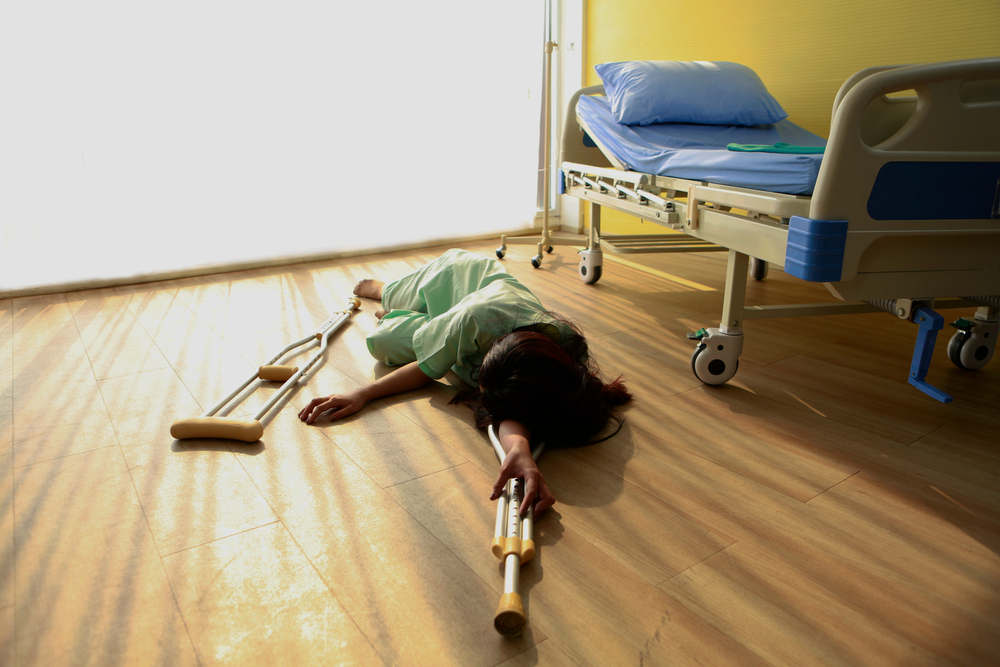
Author: John Mattiacci | Owner Mattiacci Law
Published March 5, 2025

Table of Contents
ToggleSlip-and-fall accidents can lead to serious injuries, but proving negligence is essential to recovering compensation. You might be asking: How can I prove negligence in a slip-and-fall case in Pennsylvania?
In Pennsylvania, proving negligence in a slip-and-fall case requires demonstrating that the property owner’s failure to maintain safe conditions directly contributed to the accident. Evidence such as witness statements, medical records, surveillance footage, and documentation of the hazardous condition can support your claim.
With decades of experience handling slip-and-fall cases, I’ve helped clients gather the right evidence to build strong claims. Let’s explore what you need to prove negligence and maximize your compensation.

What Are the Legal Elements of Negligence in a Slip-and-Fall Case?
What do you need to prove negligence in a slip-and-fall lawsuit? To hold a property owner liable, you must establish the following four elements of negligence:
1. Duty of Care
Property owners in Pennsylvania have a legal obligation to keep their premises safe for visitors. The level of duty depends on the visitor’s legal status:
-
Invitees (customers, tenants, or patrons): Property owners owe the highest duty of care.
-
Licensees (social guests): Owners must warn them of known hazards.
-
Trespassers: Limited duty, except when children are involved.
2. Breach of Duty
A breach occurs when the property owner fails to maintain safe conditions, such as:
-
Failing to clean spills promptly.
-
Ignoring broken steps, loose railings, or poor lighting.
-
Neglecting icy or uneven sidewalks.
3. Causation
You must show that the unsafe condition directly caused your injuries. Medical records and eyewitness statements can support this.
4. Damages
To claim compensation, you must have suffered actual losses, including medical bills, lost wages, and pain and suffering.
What Evidence Do You Need to Prove a Slip-and-Fall Case?
Winning a slip-and-fall claim requires strong evidence. The more proof you have, the better your chances of success.
Key Evidence That Strengthens Your Case:
-
Accident Reports: If you fell at a business, report the accident immediately.
-
Photos and Videos: Capture the hazard, lack of warning signs, and injuries.
-
Surveillance Footage: Security cameras may have recorded the fall.
-
Medical Records: Show the extent of your injuries and required treatment.
-
Eyewitness Statements: Bystanders can confirm the hazardous condition.
How Long Do You Have to File a Slip-and-Fall Lawsuit in Pennsylvania?
What is the deadline for filing a slip-and-fall lawsuit? In Pennsylvania, the statute of limitations for slip-and-fall lawsuits is two years from the accident date.
Filing within this period ensures your legal rights remain protected. Delaying could result in your case being dismissed.
How Does Comparative Negligence Affect Slip-and-Fall Cases in Pennsylvania?
Pennsylvania follows modified comparative negligence laws, meaning your compensation may be reduced if you were partially at fault.
How Fault Impacts Compensation:
-
If you are 0% at fault, you can recover full damages.
-
If you are 20% at fault, your compensation is reduced by 20%.
-
If you are 51% or more at fault, you cannot recover compensation.
Property owners and insurance companies may argue that you were careless, so having strong evidence is essential to proving liability.
What Are Common Defenses Used in Slip-and-Fall Cases?
How do property owners try to avoid liability in slip-and-fall cases?
Property owners and their insurers often use several legal defenses to reduce or deny liability in slip-and-fall claims.
Common Defenses Against Slip-and-Fall Claims:
- Open and Obvious Hazard: The property owner may argue that the dangerous condition was so obvious that a reasonable person would have avoided it.
- Comparative Negligence: The defense may claim you were distracted, wearing improper footwear, or otherwise contributed to the fall.
- Lack of Notice: The property owner may argue they did not have enough time to identify and fix the hazard before the accident occurred.
- Assumption of Risk: If you knowingly walked through a visibly hazardous area, the defense may claim you assumed the risk of injury.
Understanding these defenses and countering them with strong evidence is crucial to winning your case.

How Can You Strengthen Your Slip-and-Fall Case?
What steps can you take to improve your chances of winning a slip-and-fall lawsuit?
Following specific actions after the accident and throughout the legal process can significantly strengthen your claim.
Ways to Build a Stronger Case:
- Seek Immediate Medical Attention: Documenting your injuries right away provides crucial evidence for your claim.
- Preserve Evidence: Keep the shoes and clothing worn at the time of the fall in case they become relevant to your case.
- Document Everything: Take notes on the conditions at the accident scene, weather, lighting, and any witness statements.
- Follow Medical Advice: Continuing treatment as prescribed by your doctor helps demonstrate the seriousness of your injuries.
- Consult a Personal Injury Attorney: An experienced slip-and-fall lawyer can gather evidence, negotiate with insurers, and fight for maximum compensation.
A well-documented claim backed by legal representation significantly increases the chances of a favorable settlement or verdict.
Take Action to Prove Negligence and Win Your Slip-and-Fall Case
If you were injured in a slip-and-fall accident, proving negligence is key to securing the compensation you deserve. Call Mattiacci Law at (215) 914-6919 for a free consultation. Our experienced attorneys will fight to hold negligent property owners accountable.
Resources:
For more information about slip-and-fall claims in Pennsylvania, visit:
- Pennsylvania Courts – Civil Lawsuits and Statutes
- Pennsylvania Department of Health – Injury Prevention Resources
- Occupational Safety and Health Administration – Slip and Fall Prevention
- National Floor Safety Institute – Slip and Fall Statistics and Guidelines
Further Reading:
- How Much Is the Average Slip and Fall Settlement in Pennsylvania?
- What Happens During a Slip and Fall Settlement Hearing in Pennsylvania?
- What Should I Do After a Serious Slip and Fall Injury in Pennsylvania?
- Where to Find the Best Slip and Fall Attorney in Pennsylvania
